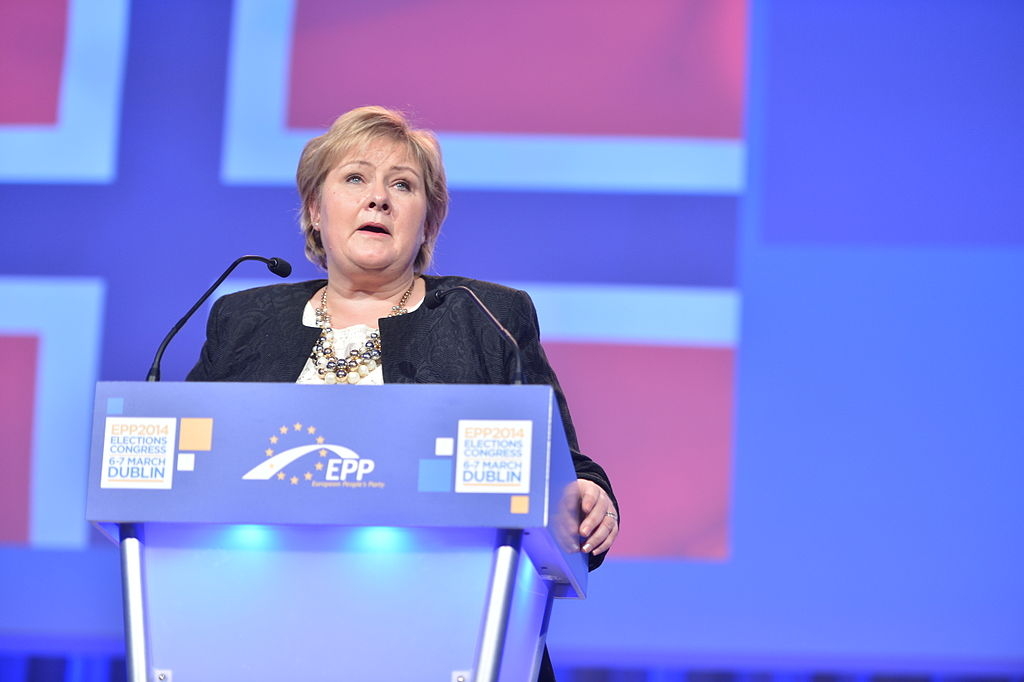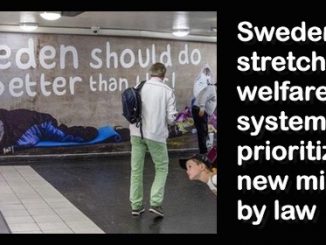
Norway’s Bewildering Election
BRUCE BAWER
- Norway is the happy beneficiary of North Sea oil; yet for decades, oil profits have piled up a government fund while Norwegians have paid the highest gasoline prices in the world.
- For years, Statistics Norway, the government agency charged with producing reliable data on every imaginable social and economic metric, has refused to make public certain “sensitive” information relating to Norway’s Muslim population, such as the actual numbers of immigrants entering the country through “family reunification.”
- Is there any hope that a second Solberg government including FrP will accomplish any more in the way of curbing immigration than the first Solberg government did? At the moment, there seems little reason for hope.
Those of us who are concerned about Norway’s rapid Islamization took great hope from the 2013 parliamentary election. What mattered was not that it resulted in the formation of a right-wing coalition government. What mattered was that the coalition government, for the first time ever, included the Progress Party (FrP).
From its founding in 1973, FrP was an outlier among Norway’s major parties, of which there many. A quick survey: The Labor Party (Ap), the most powerful party during the postwar era, is the home of the cultural establishment; LO, Norway’s equivalent of America’s federation of trade unions, the AFL-CIO, is essentially a branch of Ap, and NRK, the government-owned broadcast corporation, is often described by critics as the voice of the Labor Party.
The other left-wing parties are the Socialist Left (SV) and Red parties, both of which are basically Communist, and the eco-alarmist Greens (MdG). The “bourgeois,” or supposedly non-socialist, parties include the Conservatives (H), for business people; the Christian People’s Party (KrF), for devout Christians; the Center Party (S), for farmers; and the Liberals (V). This division between socialist and non-socialist is something of a fiction: pretty much all of these parties support high taxes, big government, and the welfare state. Norway is the happy beneficiary of North Sea oil; yet for decades, oil profits have piled up a government fund while Norwegians have paid the highest gasoline prices in the world.
FrP, however, has always been different. It is the country’s closest thing to a classical liberal or libertarian party. It believes in individual liberty, the free market, low taxes, small government; it is strongly pro-American and pro-Israel; and it has long warned against the dangers of Muslim mass immigration. For all of these reasons, it has been routinely demonized by other parties and by the media, which depicted it, with breathtaking mendacity, as a gang of bigots, fascists, and right-wing extremists.
For a long time, the other parties vowed never to allow FrP into a government coalition or to work with it in any meaningful way. But after Carl I. Hagen, the firebrand who ran the party from 1978 to 2006, handed the reins to Siv Jensen, she strove to moderate the party’s image and woo other party leaders. As a result, after the 2013 election, the Conservatives invited FrP to form a coalition government, with support from the Liberals and KrF (the latter of which still refused to be a formal part of any government including FrP).
Those of us who had been wringing our hands over Muslim mass immigration cheered FrP’s rise to power. We braced for dramatic change in immigration and integration policy – among other things.
But it never came. Immigration continued. Even in small, remote towns, hijabs and burkas proliferated. When it came to pandering to Muslims, Prime Minister Erna Solberg (H) may have outdone her Labor Party predecessor, Jens Stoltenberg: in a New Year’s speech, she heaped praise on a Somali woman who, instead of going on the dole, had taken a job as a bus driver; this year, she celebrated Eid at an event organized by two Oslo mosques, both of which have been called totalitarian by a local expert, and one of which is listed by the United Arab Emirates as a terrorist organization.

Norwegian Prime Minister Erna Solberg. (Image source: European People’s Party/Flickr) |
CONTINUE READING HERE
ER recommends other articles by The Gatestone Institute
About the author
Bruce Bawer is the author of the new novel The Alhambra (Swamp Fox Editions). His book While Europe Slept (2006) was a New York Times bestseller and National Book Critics Circle Award finalist.




